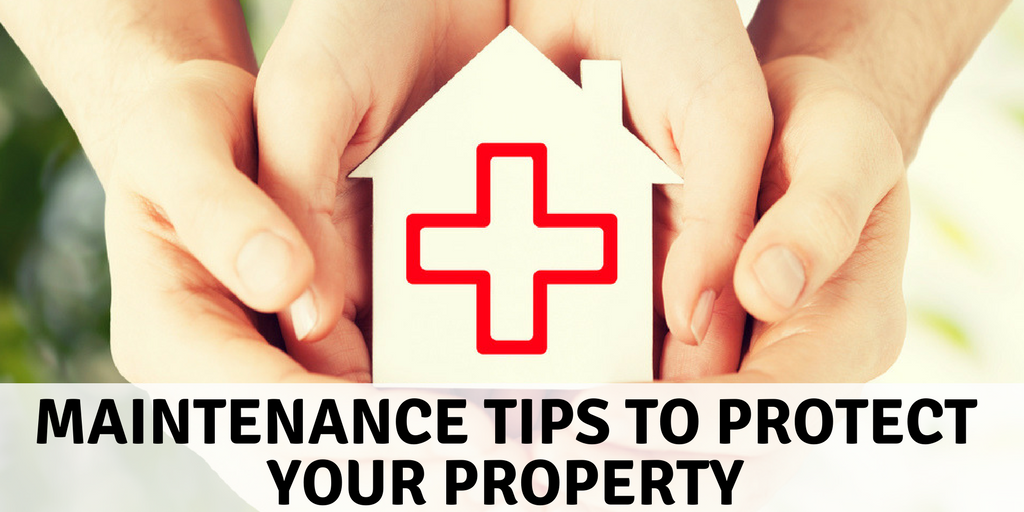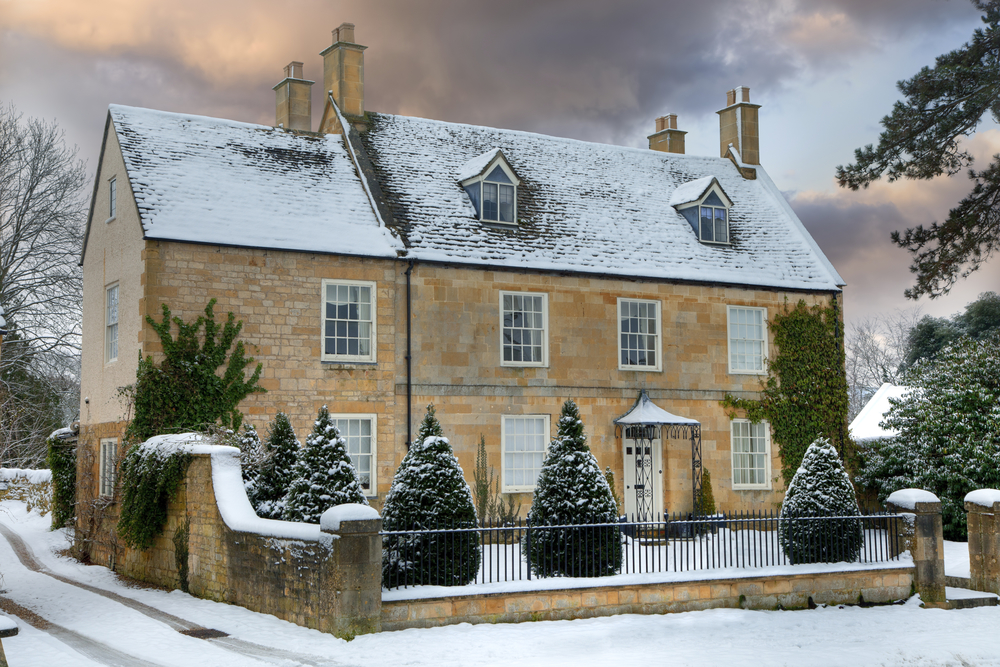Maintenance Checklist for a Holiday Let or Cottage

Property owners often forget that holiday home insurance is not a maintenance contract, and it does not cover the cost of things breaking down or wear and tear. Insurance is there to cover damage caused by sudden and unexpected events.
If you make a claim and your insurer determines that you have not adequately maintained your property, they are likely to reject your claim. For example, if a blocked gutter caused damp, or if a missing roof slate went unrepaired then you had water damage to your home.
Therefore, it’s essential that you fulfil your duty of care and take reasonable precautions to maintain your property, mitigate losses and ensure that your guests have a safe and disaster-free holiday. Regular checks and preventive maintenance reduce repair costs and the potential for damage to escalate.
Here, we’ve put together a holiday home maintenance checklist and the steps you can take to ensure your property is in tip-top condition. It should be used in conjunction with your risk assessment to ensure that nothing is missed.
Holiday home spring maintenance

Early spring is the ideal time to inspect your holiday home for signs of damage from winter and carry out essential maintenance, so your property is prepared for the busy letting season ahead.
Here are our top areas to check:
Kitchen
-Re-seal around worktops, clean tiles and re-grout.
-Sanitise the refrigerator and defrost the freezer.
-Descale the kettle.
-Check the drainage pipes from sinks and appliances for leaks that could cause rotting and dampness.
-Deep clean the oven.
Bathroom
-Remove mouldy silicone and re-seal.
-Clean tiles and re-grout.
-Plunge drains.
-Are your towels looking tired and stained? Buy some new soft and fluffy ones.
-Check the bathroom fixtures, such as the toilet, shower tray, bath and washbasin for leaks which if undetected, can cause serious damage to the floor and ceiling.
Bedroom
-Upgrade tired linens and pillows.
-Launder your mattresses and replace them if there are stubborn stains. Don’t forget to flip them to prolong their shape and comfort.
Carpets and soft furnishings
To remove stains or odours, steam clean or wash curtains, carpets, rugs, upholstery and soft furnishings.
Stain removal tips
It’s inevitable that with the constant inflow of guests, there’ll be the odd stain to deal with. Here are some tips to help you remove those stubborn stains.
Visit the loft
–Check the roof felt is intact to prevent future leaks.
-Check the loft for signs of moisture and leaking pipes.
-Look for indications of a pest infestation – droppings, smells, evidence of gnawing, chewing or wasp/bee nests.
Service the boiler
No one wants to be stuck without heating or hot water. Your boiler should be serviced annually to ensure it’s safe, working efficiently and to prevent breakdowns as heating failure could cause pipes to freeze and burst during cold snaps. Doing this in spring means that if there is a problem, it can be fixed well in time before the winter weather.
Gas safety
Make sure gas appliances are maintained and have a gas safety check carried out annually by a registered Gas Safe engineer.
Electrical appliances
All electrical appliances in your holiday home should be regularly checked for signs of a defect or wear and tear. It is your duty to ensure electrical items and your property’s electrics are safe. If you have concerns, then replace the item or have it checked by a qualified electrician. Instructing a qualified electrician to PAT (Portable Appliance Test) your appliances each year is a good idea.
Fire safety
Holiday let owners are required to comply with fire safety laws and carry out a fire risk assessment to recognise, remove and reduce fire hazards.
Regularly test that smoke and carbon monoxide detectors are working properly and replace the batteries as needed. If you have a fire extinguisher, check the pressure and expiry date.
Upholstered furniture (including beds, mattresses and pillows) must comply with the Furniture and Furnishings (Fire) (Safety) Regulations.
Mould and damp
Check walls and furnishings for spots of mould, condensation and the smell of dampness that may have appeared due to poor ventilation. Mould on walls should be treated with a diluted bleach solution to ensure any spores are killed and re-painted if necessary.
Wood
Check all wooden windows, doorframes and door edges for wood rot and cracked putty to prevent water and cold air from getting into the property. Make sure water flows away from the glass and doesn’t collect on the window sill or drain behind it. Keeping woodwork in good condition can slow down rotting and help it withstand extreme weather.
Paint
A fresh coat of paint to high footfall areas can make all the difference. Also, check the exterior paint and repaint or touch up. You might not need to paint the entire house, just the most used and/or visible areas. Examine your outdoor furniture for chipped paint and touch up or varnish as needed.
Check brickwork, paths, and patios
Check walls and the chimney to make sure the bricks, rendering and mortar are free from cracks. Look for loose steps, flags or broken brickwork that could be a trip hazard and cause an accident.
Septic tank
Empty the septic tank of solids annually.
Garden
Spring is the time to put some love into your garden. It is all about preparation – pruning shrubs, raking and repairing the lawn, mulching, weeding and planting. Check outdoor taps run properly and are leak-free.
Trip hazards
Thoroughly check staircases and carpets for trip hazards. Look for loose floorboards or kinks in the carpet or rugs and make sure handrails are secure.
Holiday home winter maintenance

As the nights get darker and colder weather approaches, winter can be undeniably harsh for holiday homes that are exposed to extreme weather.
There is the onslaught of rain, frost, snow, flooding, storms and burst pipes – all of which are more likely to cause damage to holiday homes than at any other time of year. Break-ins also tend to increase in winter as opportunistic thieves take advantage of darker evenings and holiday homes unoccupied for long periods.
Here, we provide our top tips for protecting your property during the harsh winter season. If you are closing up your holiday cottage over the winter months, it will need to be winterised.
How to prepare your holiday home for winter:
Protect your pipes
Cold snaps can cause devastation when pipes freeze, thaw and burst. To prevent pipes from freezing, consider leaving the heating on when your holiday home is unoccupied. This will also help prevent excessive moisture, condensation and damp.
If your heating system uses oil, make sure there is enough fuel for the winter period.
If you don’t plan on using your holiday home over winter, make sure you turn the water off at the stopcock when you leave. Heating your home or turning the water off is likely to be a requirement of your insurance policy.
Improve insulation
Loft insulation can help reduce heating bills and retain heat, but don’t forget to also insulate or lag pipes, water tanks and hot water cylinders that are exposed to the elements in loft areas to prevent them from freezing. Isolate or wrap exposed outside pipes with insulating sleeves and check to see if grants are available in your area for energy-saving improvements.
If you have a condensing boiler, note that external pipes are prone to freezing in winter which causes the system to shut down. Ensure this pipe is lagged.
Open the loft hatch
During extreme freezing temperatures open the loft trap door to allow warm air from the house to circulate around the loft and pipes. Our experience is that these are the pipes that are most likely to burst and cause the most damage.
Stopcock
Make sure you know where it is and that you can turn it on and off.
Bleed radiators
If you haven’t used the heating for a while, air can enter the system and form bubbles at the top of your radiators. If your radiators are colder at the top than they are at the bottom, then bleeding them will help them work more efficiently.
Ventilation
Condensation and damp can lead to mould on walls, windows and soft furnishings. Ventilation is the best way to extract moisture from the air in your holiday home. Simple steps like keeping the doors between rooms open to allow airflow, opening windows often and using a dehumidifier are easy ways to increase ventilation.
Seal gaps and openings
Draft proofing is a cheap and easy way to keep your property warm and save money on energy bills. Use draft excluders on doors and draught excluder tape or caulk on gaps to prevent the cold from coming in.
Check for leaks
Washing machines, taps, showers, baths, dishwashers etc. should be checked from time to time for leaks because even a few drops of water could cause rotting and dampness.
Beat the burglars
With attempted break-ins peaking in the winter, remember to review your security measures. You should also service your security system annually.
Get smart
Use smart home devices to monitor your home remotely, such as a thermostat, motion sensors, cameras and leak detectors.
Electricity surges
Install surge protectors as electrical storms and power surges can fry your electrical gadgets such as TVs, and modems.
Sweep the chimney
If you have an open fireplace or log burner, it’s recommended that you have chimneys swept at least twice a year if burning wood and annually if you use smokeless fuels.
Two widely recognised organisations for chimney sweeps are:
NACS (National Association of Chimney Sweeps)
The Guild of Master Chimney Sweeps
Check the roof
Check for loose or broken roof tiles and missing slates which could lead to water ingress. Tiles could also fall off in high winds and damage property – or worse, injure someone. Roof flashings and joints around chimneys, vents and skylights should also be inspected regularly for signs of damage or leaks.
Gutters and drains
Check for leaks and clear drains, gutters and downpipes of leaves and debris so rainwater can flow freely into the drains without causing flooding or damp. Signs of soil/debris at ground level can be an indication that water is not being caught by the gutter.
Also check that gutters, eaves, fascias and soffits are securely attached as snow and heavy rainfall can easily overwhelm them.
Prune overgrown hedges and branches
In high winds, a falling tree and branches could damage your property or a third party. Keep trees and shrubs well pruned, remove dead/damaged branches and ensure they are clear of buildings and cables.
Outbuildings
Don’t forget to check that outbuildings, sheds and garages are well-maintained, secure and weather-tight.
Fencing
Inspect gates, boundary walls and fences for damage and carry out repairs so they can withstand the winter conditions. If you’ve got a back or side gate onto your property, make sure this is secure too.
Satellite dishes/TV aerials
High winds can cause damage to these, are they fixed securely?
Slippery surfaces
If you are letting your holiday cottage throughout winter, there is a danger that a guest or someone visiting your property could slip and fall on slippery paths or decking and sue for an injury. Keep driveways, paths, steps and decking well-lit and clear of algae and slippery leaves.
Prepare for snow and ice
Snow and freezing weather can cause paths and walkways to be hazardous. Provide your guests with a supply of salt or grit and a shovel.
Outside furniture
Inspect your outside furniture to ensure that it is safe and fit for purpose. Securely store outdoor furniture and loose garden items in a garage or shed when unused during winter to prevent them from decaying, being damaged in a storm or stolen.
Doors and window locks
Check for faulty door or window locks as this can significantly increase the risk of burglary. If you use a key safe, check it functions properly and is secure. Don’t forget to change the code regularly.
Lock outbuildings
Keep expensive garden equipment stored in a locked outbuilding and don’t leave tools lying around that thieves can use to break into your home.
Ladders
If you have a ladder stored outside, make sure it is secured down with a padlock and chain.
Security lighting
Check that any outside lighting you have works properly or consider motion sensor lights if you don’t already have them.
Emergency pack
Torches, a first aid kit, important documents and phone numbers should always be to hand in case of power cuts or emergencies.
Weather alerts
Having weather alert apps on your smartphone will allow you to know in advance of incoming storms and flooding, so you can take necessary precautions.
Check out our flood guide for advice on how to protect your home.
Storm checklist
Here are some areas to check after a storm to help mitigate further damage, but only if it’s safe to do so.
-Stand back and check your roof for missing tiles, damaged flashing, blocked or damaged guttering.
-From your loft, check whether the roof is sagging, and if there are any patches of dampness or signs of daylight.
-In your garden check outbuildings, boundary walls, and look for broken furniture, loose branches or exposed tree roots. Most insurance policies exclude cover for fences but still check them.
Inspections
Ensure someone checks your holiday home for potential problems regularly (check with your insurer for how often) if it’s left unoccupied over winter.
Changeover checklist
There are many checks that should be done during each changeover. Use this list that you or your housekeeper can cross-check after each rental.
To summarise
Spring home maintenance goes hand in hand with winter maintenance and some tasks will overlap. The main point is to maintain your holiday home all year round. By doing so, there’s less chance of a small issue turning into a big disaster, saving you unnecessary costs.
Remember:
- Carry out regular home maintenance checks to quickly identify potential issues that could result in damage. Especially ahead of winter and again after any bouts of bad weather.
- Ensure any repairs or maintenance is done as soon as possible to prevent any long-term, and potentially more expensive damage.
- Make sure guests know exactly what to do if something goes wrong.
- Home insurance policies will not cover general wear and tear or damage due to lack of maintenance.

One Comment
What a great guide for all property owners with lots of essential checks/tips.
With regards to clearing your gutters people do not realise the importance of keeping your gutters clear.
Block gutters can cause major costly issue’s to your property and its highly recommended to keep up with the maintenance and was well worth mentioning.